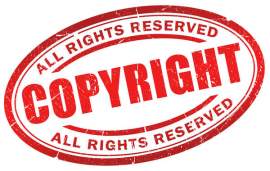
Uncover the International Copyright Act of 1891

Popular In Copyright
Copyright Law Copyright Infringements What Is Copyright Legal Consequences Of Plagiarism Copyright Free Image Florida Prepaid Postsecondary Education Expense Board V College Savings Bank Famous Cases Of Copyright Law Copyright A Book Library Of Congress Copyright Copyright Laws For Motion Pictures Copyright Infringement Punishment Copyright Symbol
The International Copyright Act of 1891 served as a revision to the Copyright Act of 1870. The revisions made in 1891 gave limited protection to foreign copyright holders for the first time. The Act, commonly referred to as the Chace Act after Rhode Island senator Jonathan Chace, was passed by the 51st Congress on March 3rd, 1891. The first international copyright protected by the 1891 Act was a play titled Saints and Sinners by British author Henry Arthur Jones.
The American Copyright League was an organization
that supported the establishment of a movement that would eventually lead to
the creation of the International Copyright Act of 1891. They had been
supporters of the original Copyright Act established in 1870 but wanted
international copyright protection. Other popular writers who wished copyright
laws would extend beyond the United States included Mark Twain, Louisa May
Alcott, and Edward Eggleston. All of these writers sent letters to the Century Journal stating
their case and the need for international copyright laws.
Before the International Copyright Act of 1891, a
creator of an original work had to gain residency in the country in which they
wished to be protected by copyright laws. This is not an effective way of
establishing international copyright laws. If an author was willing to include
a citizen of a foreign country as a collaborator in their work, that work could
be copyright protected in the collaborator's home land.
The Act offered protection to any nation willing
to enter into an agreement with the United States regarding copyright laws that
could be shared between nations. Foreign relations played a role in agreements
between nations aside from entering into agreements together. If a country was
willing to protect the rights of American copyrighted material, a presidential
proclamation could be made granting a foreign nation the same rights.
NEXT: Uncover the International Copyright Law Fair Use




















